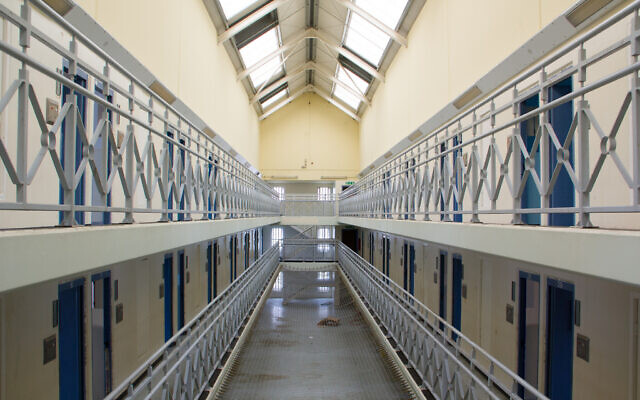Making sense of the sedra: Matot-Masei
The modern penal system is under immense strain. Under-resourced, under-appreciated and overwhelmed, prisons not only fail to rehabilitate, but can perpetuate the underlying problems that lead to crime and propel those who have committed petty infractions into communities of criminals.
Of course, society needs to ensure that crime does not pay, and punishments such as compensation, fines, community service and custodial sentences are attempts to achieve this. Punishments are intended to serve as deterrents, to give a sense of justice to the aggrieved, to make a statement to society, to limit freedoms to remove someone who may be a potential threat, and to attempt to rehabilitate.
These priorities often conflict: the death penalty may give a sense of justice but obviates any sense of rehabilitation and seems to have little impact as a deterrent. The concept of open prisons or of non-custodial sentences, while better for rehabilitation, can leave victims or society feeling that justice has not been done.
The Torah’s system of justice, writes the Maharal, is predicated on God being the ultimate judge, and that punishments are not only limited to this world. Human justice plays a role, but it is partial, and judges and the courts must bear this in mind.
The Torah does advocate the death penalty, but the sages in the Mishnah maintain that it should be used only rarely. “The High Court that kills once in every seven years is bloodthirsty. Rabbi Elazar Ben Azariah says (it should be) once in every 70. Rabbi Tarfon and Rabbi Akiva say, ‘If we were in the High Court it would never have executed (anyone)’. Rabbi Shimon Ben Gamliel says, ‘If so, this would increase blood spilt in Israel.’” (Makkot 1.10)
Incarceration, however, plays a much more limited role: there is no concept per se of prison in the Torah. Instead, in cases of negligent killing, and prior to an alleged murderer being tried, the perpetrators are to flee to cities of refuge, as stated in this week’s parsha Matot-Masei (Bemidbar 35.11). These cities – six of which are set aside for this purpose, and 42 cities primarily for Levites – were not prisons; the Talmud notes that the cities should be conducive to normal life.
The Chizkuni gives a fascinating explanation to one of the most curious details about this exile: that the refugee is to stay there until the death of the High Priest (35.28): “All of the cities of refuge are under the auspices of the High Priest, and he enters his jurisdiction…”
Whilst limited in the number of cases, this model has much to teach us about the role of incarceration. Firstly, it should allow for normal life to be lived; while freedoms will be curtailed, ones should live among regular citizens, or, better, Levites – those with a designated role for teaching Torah and assisting in the Temple. Secondly, one is not rejected from society, but cared for by the same person who has responsibility for the holiest matters.

Thank you for helping to make Jewish News the leading source of news and opinion for the UK Jewish community. Today we're asking for your invaluable help to continue putting our community first in everything we do.
For as little as £5 a month you can help sustain the vital work we do in celebrating and standing up for Jewish life in Britain.
Jewish News holds our community together and keeps us connected. Like a synagogue, it’s where people turn to feel part of something bigger. It also proudly shows the rest of Britain the vibrancy and rich culture of modern Jewish life.
You can make a quick and easy one-off or monthly contribution of £5, £10, £20 or any other sum you’re comfortable with.
100% of your donation will help us continue celebrating our community, in all its dynamic diversity...
Engaging
Being a community platform means so much more than producing a newspaper and website. One of our proudest roles is media partnering with our invaluable charities to amplify the outstanding work they do to help us all.
Celebrating
There’s no shortage of oys in the world but Jewish News takes every opportunity to celebrate the joys too, through projects like Night of Heroes, 40 Under 40 and other compelling countdowns that make the community kvell with pride.
Pioneering
In the first collaboration between media outlets from different faiths, Jewish News worked with British Muslim TV and Church Times to produce a list of young activists leading the way on interfaith understanding.
Campaigning
Royal Mail issued a stamp honouring Holocaust hero Sir Nicholas Winton after a Jewish News campaign attracted more than 100,000 backers. Jewish Newsalso produces special editions of the paper highlighting pressing issues including mental health and Holocaust remembrance.
Easy access
In an age when news is readily accessible, Jewish News provides high-quality content free online and offline, removing any financial barriers to connecting people.
Voice of our community to wider society
The Jewish News team regularly appears on TV, radio and on the pages of the national press to comment on stories about the Jewish community. Easy access to the paper on the streets of London also means Jewish News provides an invaluable window into the community for the country at large.
We hope you agree all this is worth preserving.






















